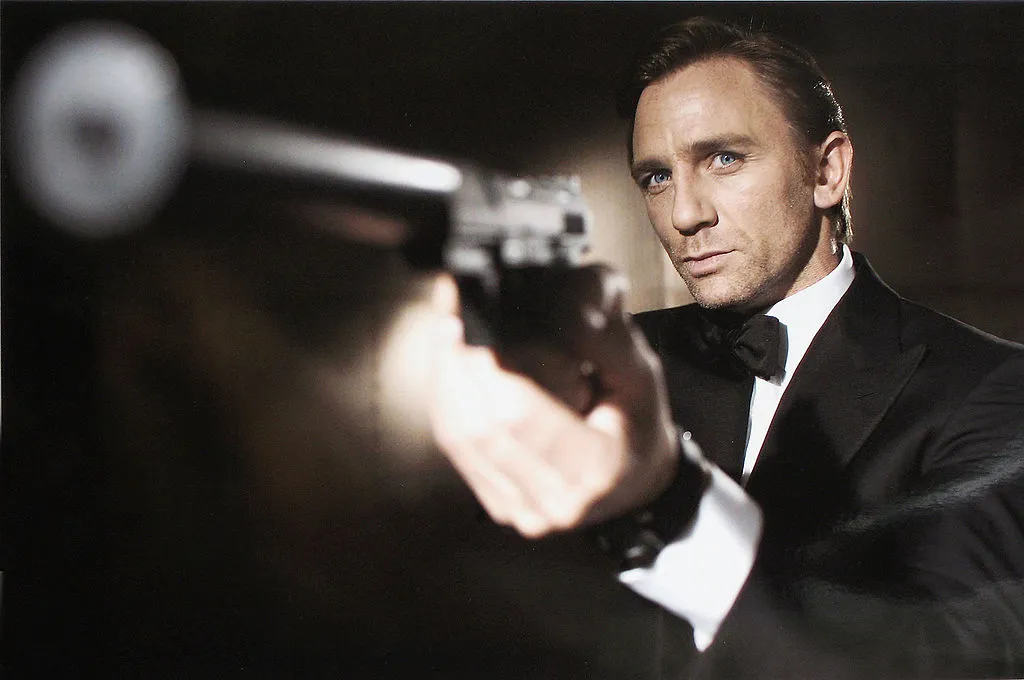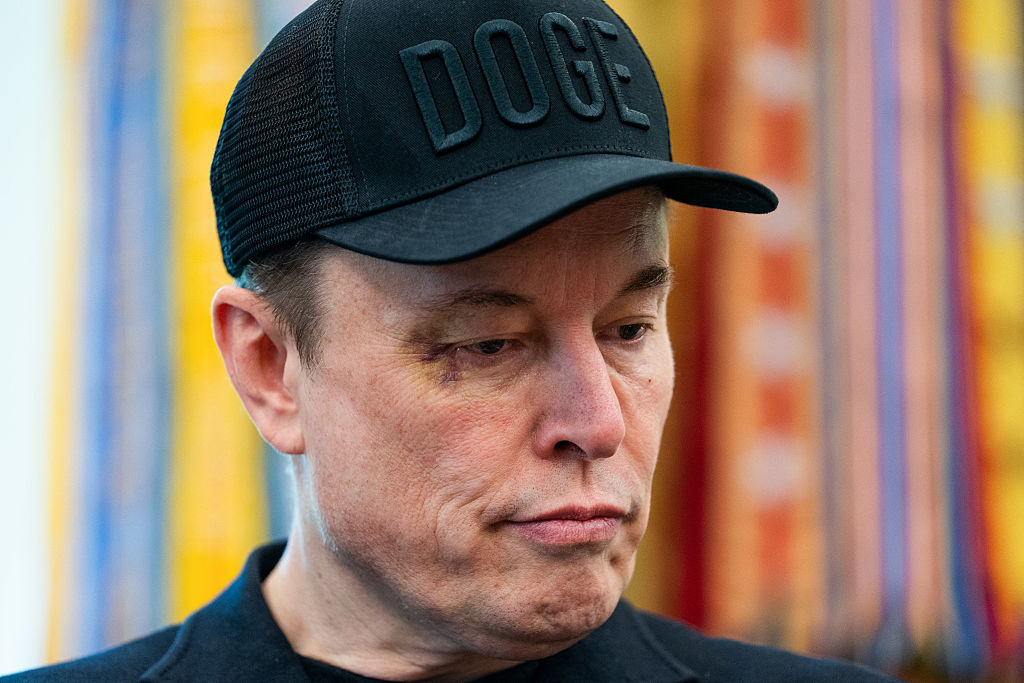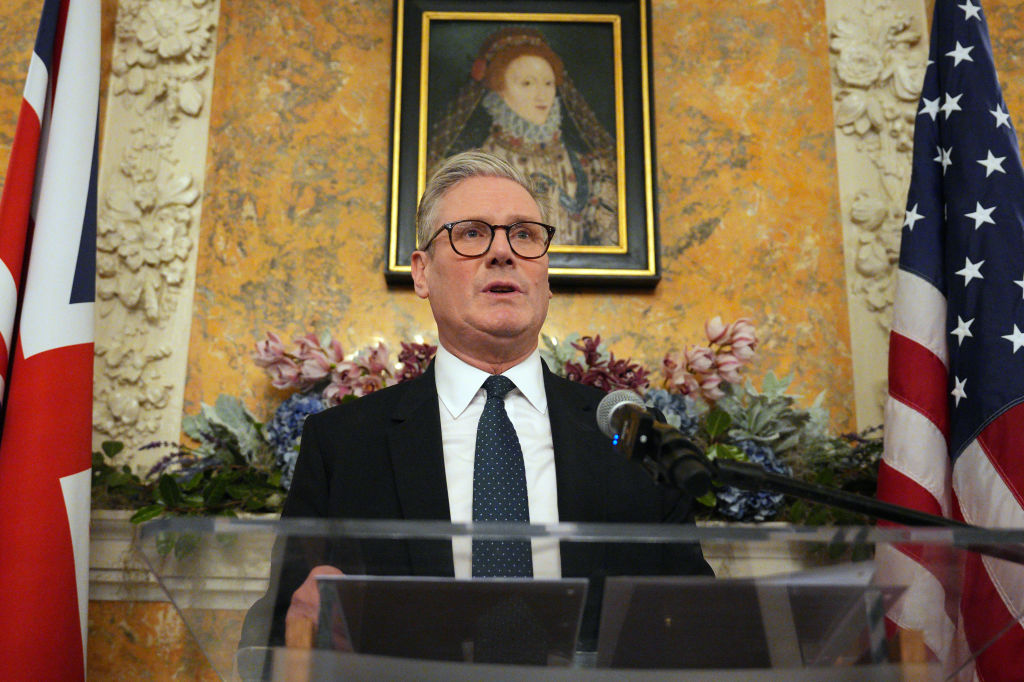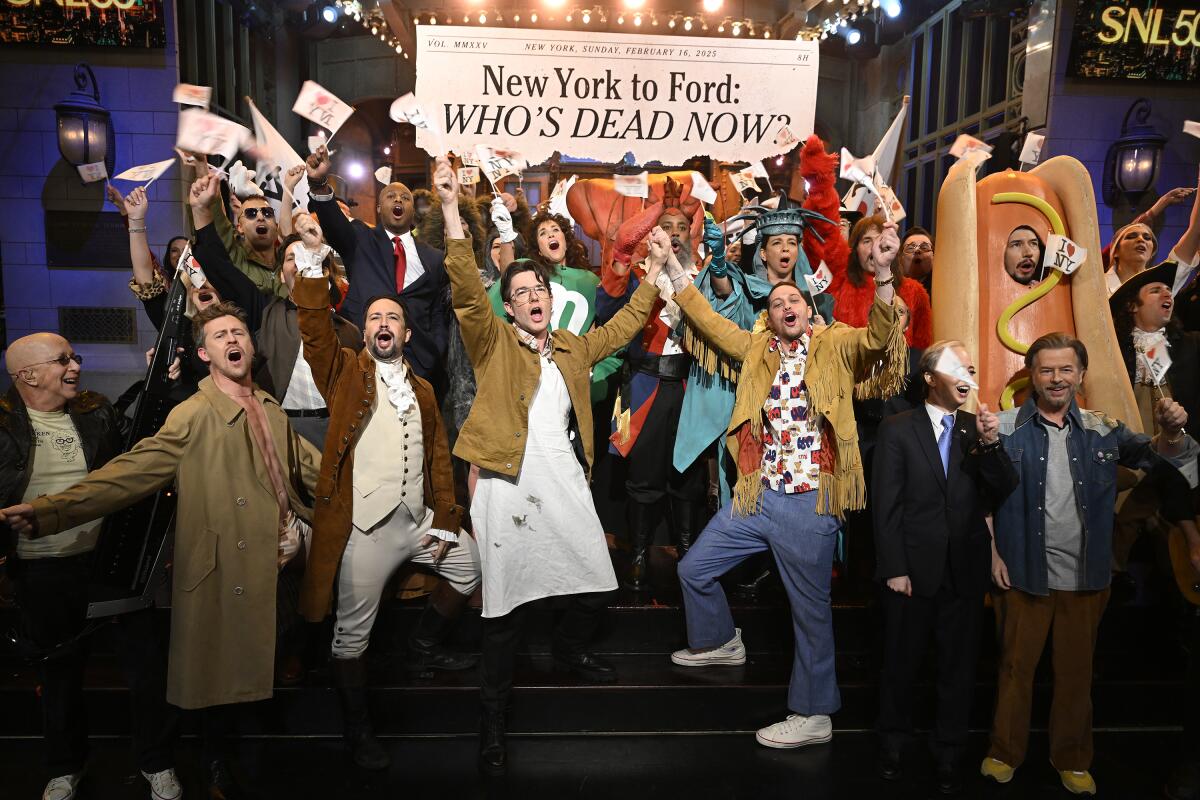The latest Bond villain is Nigel Farage. Not literally, of course. But he was clearly a major inspiration for the chief antagonist in the most recent James Bond book, On His Majesty’s Secret Service. This master of international skulduggery is known as Athelstan; a former City trader with a Kentish accent, he espouses a boisterous, saloon-bar English nationalism of the kind usually ascribed to the former UKIP leader.
The men drawn to Athelstan’s scheme are preposterous caricatures of the kind of people whom Higson dislikes — i.e. people who have any kind of reservations about any aspect of progressive politics
The author, Charlie Higson, has had a certain amount of commercial success with his Young Bond novels. I have not read any of them so cannot comment on their quality, but his contribution to the mythology of the adult Bond is outstandingly terrible. It makes Dan Brown look like a master of nuance, understatement and subtle characterization. The plot, if you can call it that, involves Bond traveling to Hungary, to infiltrate Athelstan’s scheme to use a team of mercenaries to disrupt the coronation of Charles III.
Our hero has somehow become the modern age in arms, a Centrist Dad with a sidearm: he frets over articles about gut health in the New Scientist, and disdains big corporations for their supposed use of child sweatshops. His casual lover — unseen and conveniently relaxed about his extracurricular sexual adventures — is an immigration lawyer. He muses, in terms that sound suspiciously like a Nick Cohen column, about how the “far right,” which here means anyone to the right of Tony Blair, is identical to the “far left,” i.e. anyone to the left of Tony Blair. In a Budapest hotel, he opts for a healthy continental breakfast instead of a full English, like a middle-aged husband trying to shed some excess pounds before a family holiday. Not that Higson’s Bond would ever think of his weight in pounds: this archetypal British hero has allegedly “never known imperial measurements… The metric system seemed to make a lot more sense.” Meanwhile 007’s internal monologue seems to have been scripted by a Guardian intern, with a cartoonish portrayal of Viktor Orbán — strongly implied to be bankrolling Athelstan’s evil plan:
Neither Nazi Germany nor Soviet Russia had been welcome here, though. They were two sides of the same dirty, debased coin. After the Hungarians had kicked out their Soviet overlords, the statue was changed to an all-purpose personification of liberty. And now it celebrated freedom from the whole damned lot of them. Which is why Bond felt a deep sense of gloom that this beautiful, civilized, orderly country had been dragged back towards the far right by Viktor Orbán, using the crude but effective nationalist playbook. Stirring Hungarians up with his antisemitic conspiracy theories, and crude, ‘Make Hungary Great again’, anti-immigration rhetoric. He’d aligned himself with the likes of Trump and Le Penn [sic] and Putin, and, just like them, he was using a paper-thin front of patriotism to mask rampant self-interest. In this uncertain world, the age-old lure of the Strong Man held an irresistible appeal to all those who felt left behind and bewildered by change. Bond had no love of autocrats of whatever hue. From what he’d read in M’s file, Athelstan of Wessex was a friend of Orbán.
There is even a bizarre section where Bond reacts to Athelstan’s chauvinistic tub-thumping by mentally rehearsing the “waves of immigration” theory of British history, in which Englishness is some transient, flimsy construct with no meaningful content.
So far, so cringeworthy. However, it is the portrayal of its villains where the book becomes truly, farcically bad. The men drawn to Athelstan’s dastardly scheme are preposterous caricatures of the kind of people whom Higson dislikes — i.e. people who have any kind of reservations at all about any aspect of progressive politics. None of them is a genuine character. Instead they are mere empty vessels, onto which he projects his bizarre fantasies about the motivations and beliefs of conservatives. People who are skeptical about mass immigration or transgenderism or the erosion of free speech are simply itching to engage in mass terror attacks in the heart of London, apparently. I was reminded of the Christian books and films you used to encounter occasionally, where the baddies are gay atheist left-wing academics who think evolution abolished morality and are cheating on their partners.
Higson tries to have his cake and eat it, naturally. Despite this being a self-consciously progressive Bond, the narrative still dwells lovingly on the hardware, as is conventional in thrillers: the Glocks, the cars, the body armor, the machine guns. At one point, the writing begins to resemble a Top Gear script, with Bond taking a moment in the midst of a high-speed pursuit to be grateful for his vehicle’s “rugged, lightweight, off-road stability.” He is also aided by a team of British special forces, the kind of men whom in the real-world Higson would doubtless regard as “toxic” (a fashionable adjective that predictably crops up in this book several times). There is plenty of action to distract the reader from the half-baked story, including a scene in which, and I promise I am not making this up, Bond uses a new fifty pence piece bearing the portrait of Charles III to disarm Athelstan, by throwing it into the latter’s mouth from across a large room.
On His Majesty’s Secret Service is clearly a work of propaganda. Interestingly, its use of King Charles as an emblem of the Good Modern Britain — the multicultural, liberal, internationalist Britain — mirrors a growing feeling in some right-wing circles that Charles is not on their side.
I admit to being somewhat surprised by quite how leaden and didactic this book was. Are there no editors left, I asked myself as I waded through the underpowered, hectoring prose. Perhaps, however, that is a function of how hegemonic Higson’s views are among the creative classes.
After all, goldfish do not know they are wet, and people who conform instinctively and wholeheartedly to contemporary pieties — about borders and gender and free speech and identity — find it very difficult to understand the extent of their epistemic bubbles. We seem to be entering an age when didactic pro-establishment propaganda with little merit is not only everywhere, but goes unremarked and uncriticised because the people with cultural power generally agree with each other about almost every issue of importance. There is less intellectual diversity in our creative classes — less genuine openness to opposing ideas — than there has been for well over a century. Even in Victorian, Edwardian and interwar theater — under the supposed hegemony of old uptight Christian Britain, where the Lord Chamberlain’s pen hovered ominously over the playwright’s desk — there were many searching and well-written attacks on the dominant social conventions and taboos.
We see the modern lack of diversity very clearly with British comedy and popular film. Have I Got News For You — a program which first aired when Mrs. Thatcher was in Downing Street and the Soviet Union still existed — staggers on in its thirty-third year, with its interminable procession of left-liberal guests making the same jokes from the same perspective week after week. Other TV comedies, and many stand-ups, suffer from the same tiresome predictability. As Ed West has written, “this kind of anti-comedy makes no real attempt to poke fun at the genuinely powerful, the people who could lose you your job or your friends, nor to take aim at the absurdities of the new regime or break its taboos.” Feeble sequels to Star Wars and Indiana Jones, and lackluster new installments in the Marvel film series, have attempted to elevate new and politically congenial characters at the expense of the beloved original characters, but no one is going to remember the new ones in a decade’s time.
It is perhaps some consolation that there must eventually be a reaction against the smug, complacent tone of the contemporary cultural scene. Until then, it seems like we may be in for some very bad films, books and TV shows, praised not for any artistic merit but for their ideological conformity.
This article was originally published on The Spectator’s UK website.

























